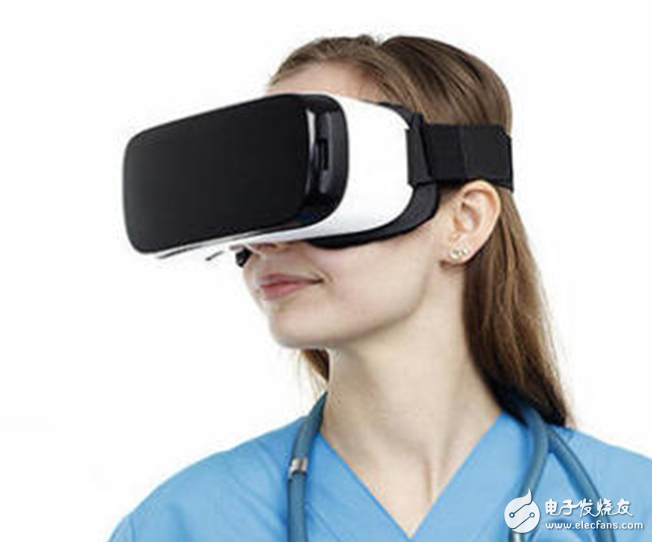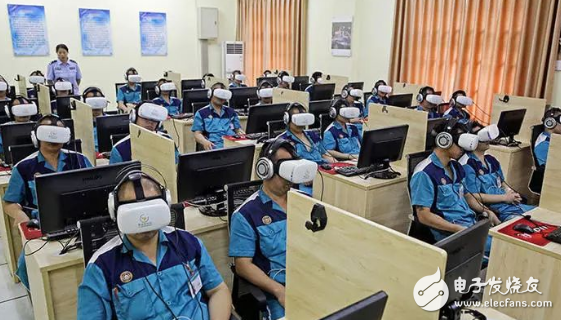The application of VR technology in the medical field is no longer a novelty. We believe that VR technology can have more applications and help more people. Today's VR glasses can cure strokes, social phobias, and help with detoxification.
Some people in foreign countries have done research. If a child's body is given to an adult in a VR environment, then he will show a lot of childish behavior. This is the human brain being "deceived" by VR.
Inspired by this research, Sook-Lei Liew, an assistant professor at the University of Southern California, wants to know, can VR help treat stroke patients?

She believes that if a stroke patient is allowed to act normally through VR pretense, it may help to improve brain plasticity, restore damage, and hopefully allow the patient to move the uncontrolled limb again.
1 Based on this judgment, Liew formed a research team and has been conducting research for two years. Researchers use EEG to identify activity signals from the brain while using EMG to study muscle activity. Together, these can tell the researchers whether the patient's body is moving or trying to move.
Next, these signals are imported into a program on the computer. When the brain or muscle has a signal that is trying to move and is recognized by the program, a virtual arm in the VR will act accordingly. This visual feedback from the patient wearing VR glasses, in turn, stimulates the brain's nerves, strengthens the neural pathway from the injured motor cortex to the dyskinesia, and speeds up the patient's recovery.
Of course, the idea of ​​using VR technology to treat stroke patients is not unique to Liew. In February last year, a Swiss company called MindMaze received a $100 million investment. Their efforts were to bring virtual reality hardware integrated into neuroscience to the market, and the treatment of introducing VR into stroke was also in their planning.

Although VR devices have not exploded in the personal consumption field, with the advancement of this technology, it has slowly demonstrated its potential in the medical field. Some medical schools have begun to use VR equipment to train students, and midwives even use it to learn how to deliver babies.
In May of this year, MindMaze announced that its MindMaze Pro VR treatment platform has been approved by the US Food and Drug Administration (FDA) to enter the US market and provide treatment options for stroke rehabilitation patients in the United States. This platform was launched in the European market in 2013 and has completed clinical trials of 261 patients.
In addition to stroke, there are many other conditions that are suitable for treatment with VR technology, such as social phobia. Xu Yifeng, dean of the Shanghai Mental Health Center, told Zhai Jun: "VR technology is especially suitable for application in the psychiatric field."
In the past, when treating social anxiety disorders, patients were required to imagine many scenes on their own. This is a subjective method with great uncertainty and treatment effects vary from person to person. With the help of VR glasses, patients can easily enter the virtual scene set by the doctor and try to overcome their psychological obstacles in immersion.
In addition, there are some other examples. MIT students have developed a VR application for Alzheimer's patients, trying to provide elderly people with memories through old photos of the elderly, familiar music, and so on. The VR physiotherapy rehabilitation product launched by an Israeli startup has also been approved by the FDA as a medical aid to the application.

VR assisted detoxification in Hangzhou
In China, we started to use VR technology to help with detoxification. According to a reporter's report, at the beginning of this year, a "VR detoxification system" began to be used in Zhejiang's drug rehabilitation centers. The system is mainly aimed at ice addiction addiction, built-in short film shots of real people, drug addicts to receive 6 VR treatments on a regular basis, a treatment containing re-modeling scene assessment drug addiction, aversion treatment and regression treatment three short films. According to reports, the system is effective in treating moderately cravings by 98.1%.
According to a research report on virtual reality medical services market published by research institute RnR Market Research, the global VR medical service market will grow at a compound growth rate of 19.37% from 2014 to 2019. Walter Greenleaf, director of the Stanford VR Medical Institute, predicted that "games and video-driven VR technology will evolve, but healthcare will be the largest market for VR."
Driven by the market, VR's landing speed in the medical field may exceed our expectations.
SHENZHEN CHONDEKUAI TECHNOLOGY CO.LTD , https://www.szsiheyi.com